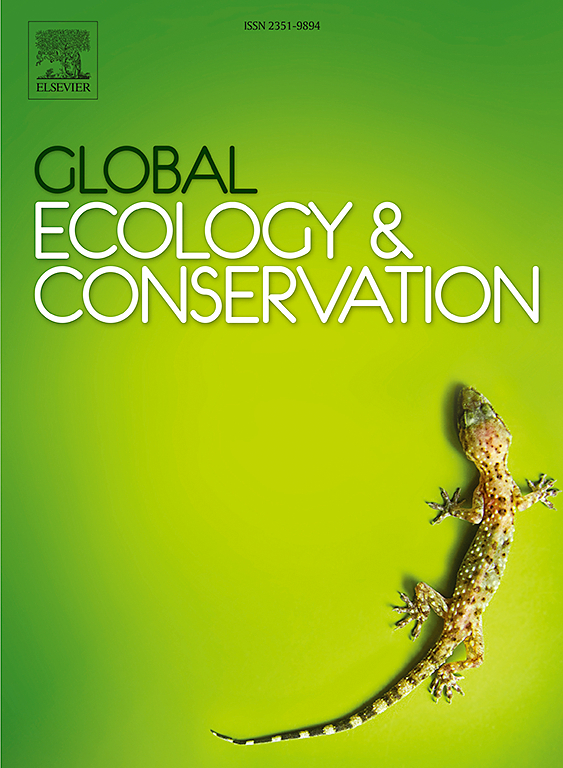旅游鲨鱼摄食聚集的科学机遇-综述
IF 3.4
2区 环境科学与生态学
Q1 BIODIVERSITY CONSERVATION
引用次数: 0
摘要
在过去的几十年里,鲨鱼旅游呈指数级增长。对于潜水经营者来说尤其如此,他们利用人工供应来吸引动物,增加了参与者遇到动物的可能性。然而,这种做法经常被认为是有争议的,因为以前的研究已经指出了这种活动的积极和消极后果,这些活动往往高度依赖于情况。在这篇综述中,我们调查了这些基于人类活动的活动在多大程度上对鲨鱼相关科学的不同学科做出了贡献,并讨论了其潜在的未来作用。我们展示了它的科学贡献,特别是在大型鲨鱼物种的行为和社会动态领域,这些物种通常难以捉摸,难以在野外获得。此外,旅游鲨鱼喂食地点也受益于新方法和技术的应用和测试。最近的研究方向表明,最大的好处之一可能是随着时间的推移,可以定期访问同一个人,从而使研究从以人群为基础转向以个人为基础。这将促进我们对个体间和个体内差异及其潜在原理的理解,因为我们将能够更深入地研究鲨鱼的个性、社会互动及其机制。本文章由计算机程序翻译,如有差异,请以英文原文为准。
Opportunities for science in touristic shark feeding aggregations – A review
Shark tourism has been rising exponentially over the past decades. This is particularly true for dive operators that make use of artificial provisioning to attract the animals, increasing the likelihood of encounters for participants. However, this practice is often deemed controversial as previous research has pointed out positive as well as negative consequences of such activities which are often highly case-dependent. In this review, we investigate to which extent these anthropogenic-based activities have contributed to different disciplines within shark related science and discuss its potential future role. We demonstrate its scientific contribution especially in the fields of behavior and social dynamics of large shark species, which are usually elusive and difficult to access in the wild. Additionally, touristic shark feeding sites have benefitted the application and testing of novel methods and technologies. Recent research direction shows that one of the greatest benefits might be the regular access to the same individuals over time, allowing a shift from population-based towards individual-based research. This will advance our understanding of inter- and intra-individual differences and its underlying principles as we will be able to dive deeper into shark personalities, social interactions and their mechanisms.
求助全文
通过发布文献求助,成功后即可免费获取论文全文。
去求助
来源期刊

Global Ecology and Conservation
Agricultural and Biological Sciences-Ecology, Evolution, Behavior and Systematics
CiteScore
8.10
自引率
5.00%
发文量
346
审稿时长
83 days
期刊介绍:
Global Ecology and Conservation is a peer-reviewed, open-access journal covering all sub-disciplines of ecological and conservation science: from theory to practice, from molecules to ecosystems, from regional to global. The fields covered include: organismal, population, community, and ecosystem ecology; physiological, evolutionary, and behavioral ecology; and conservation science.
 求助内容:
求助内容: 应助结果提醒方式:
应助结果提醒方式:


